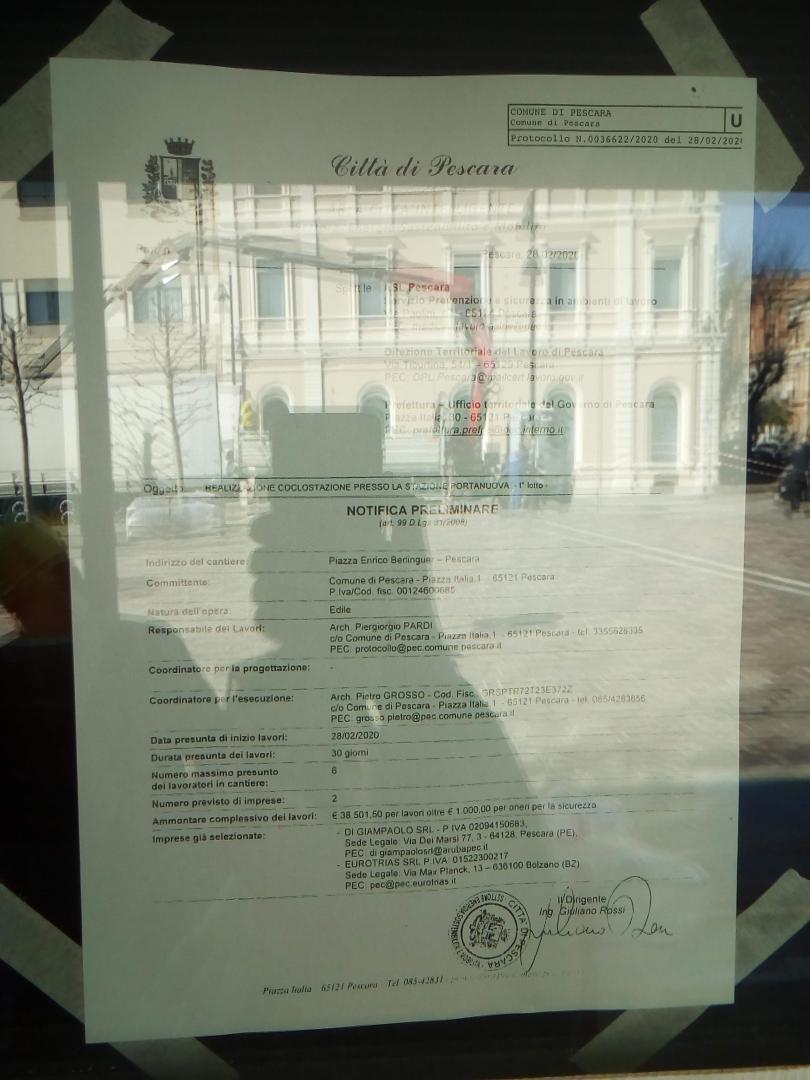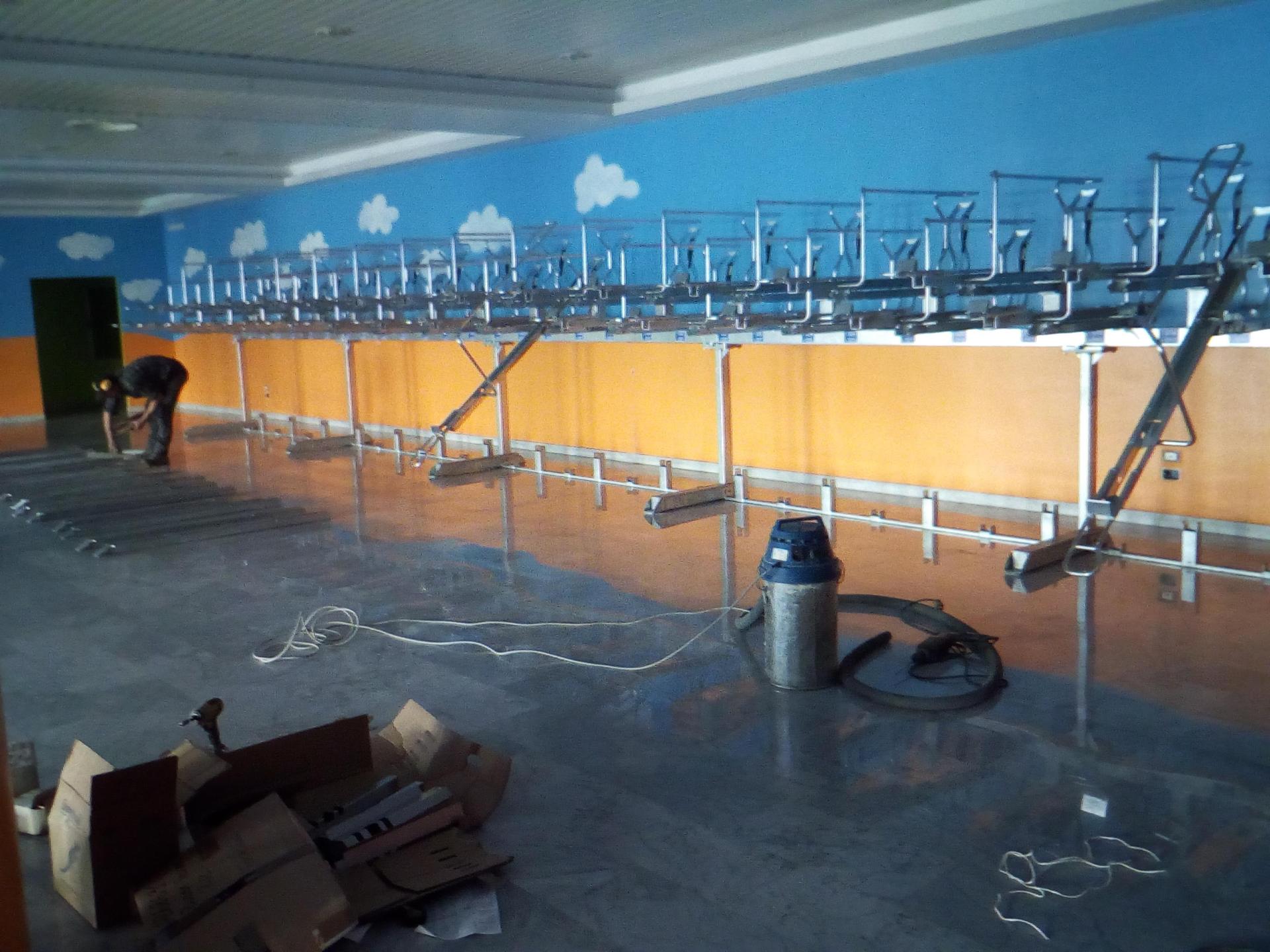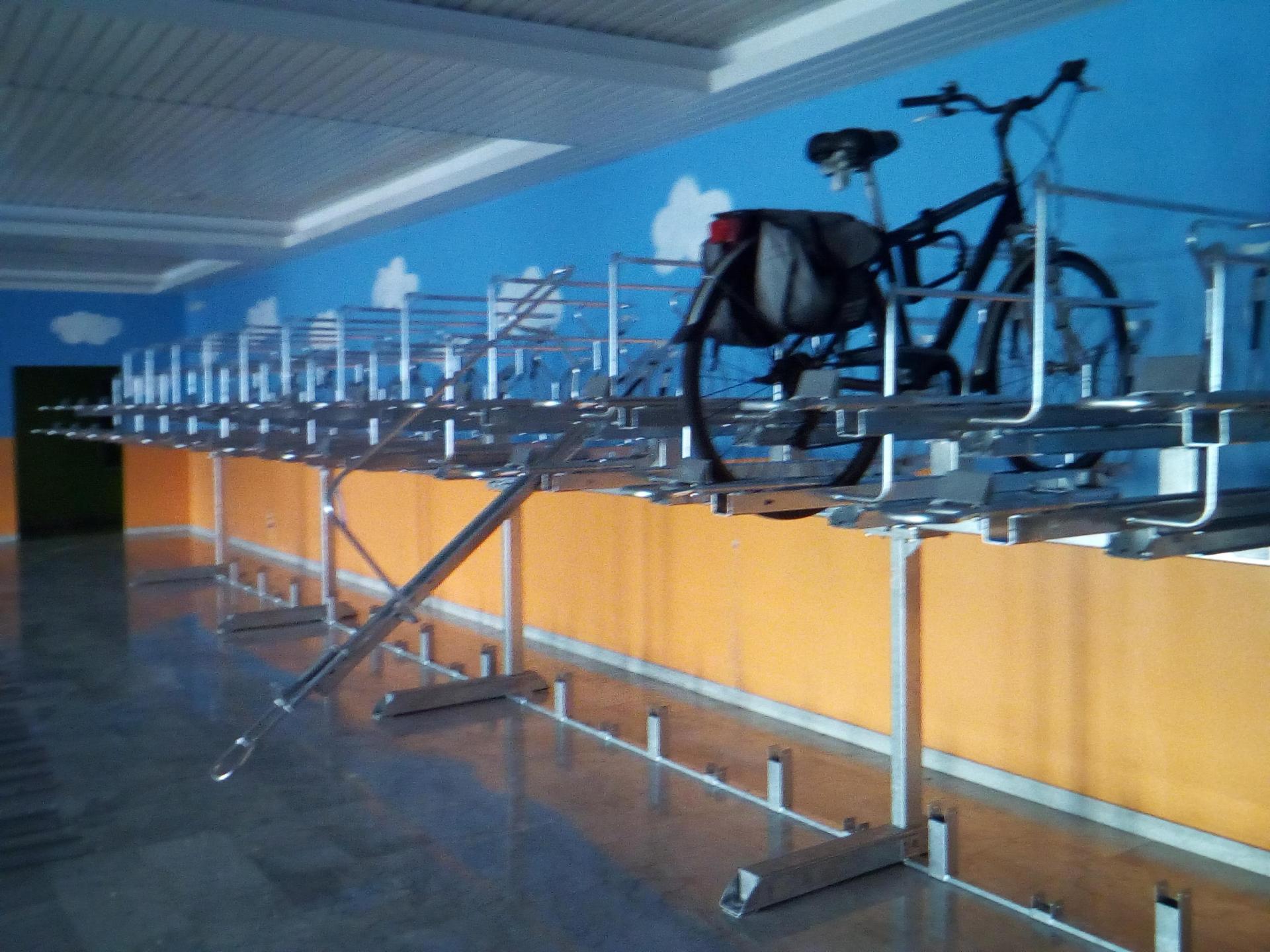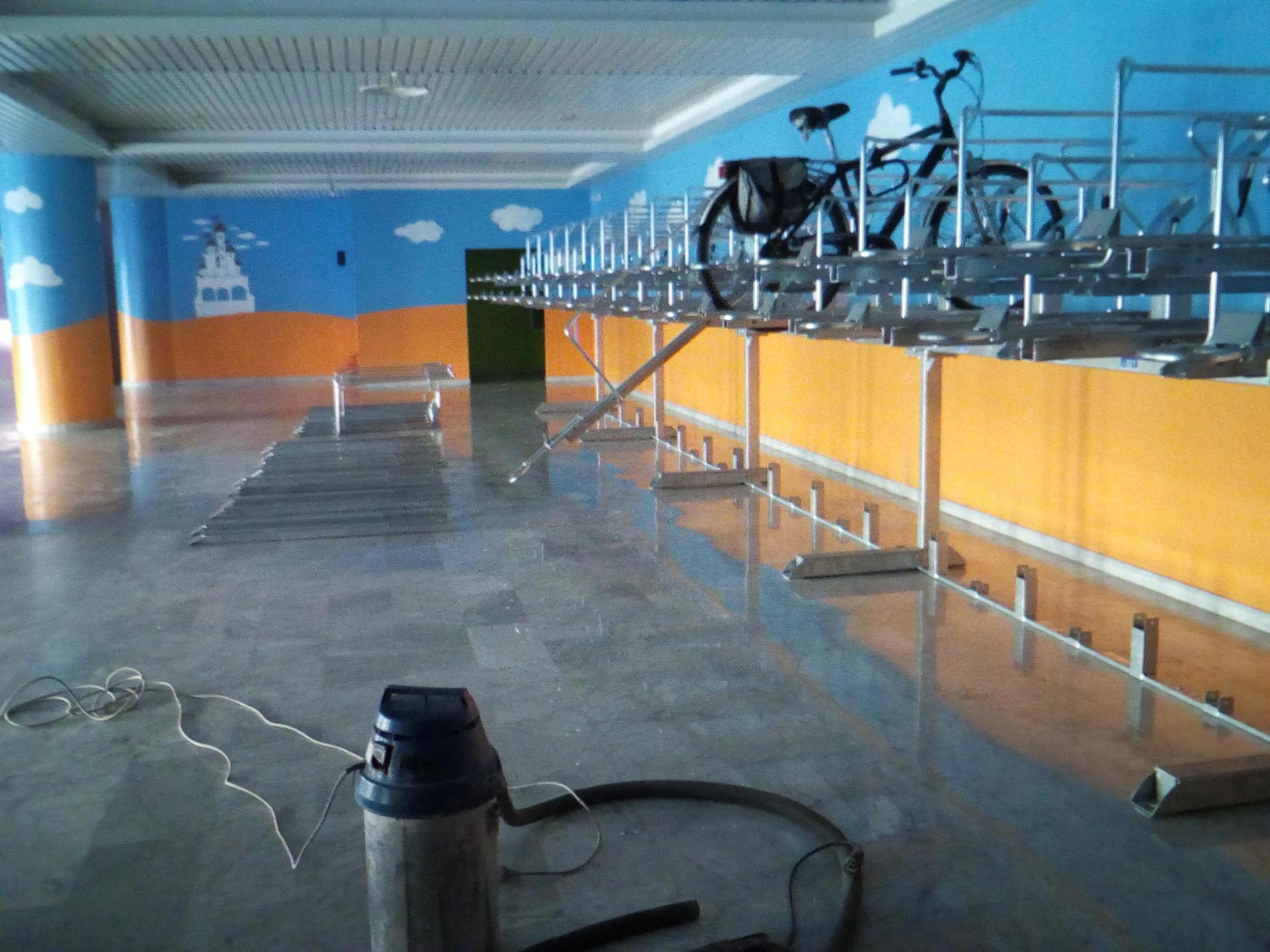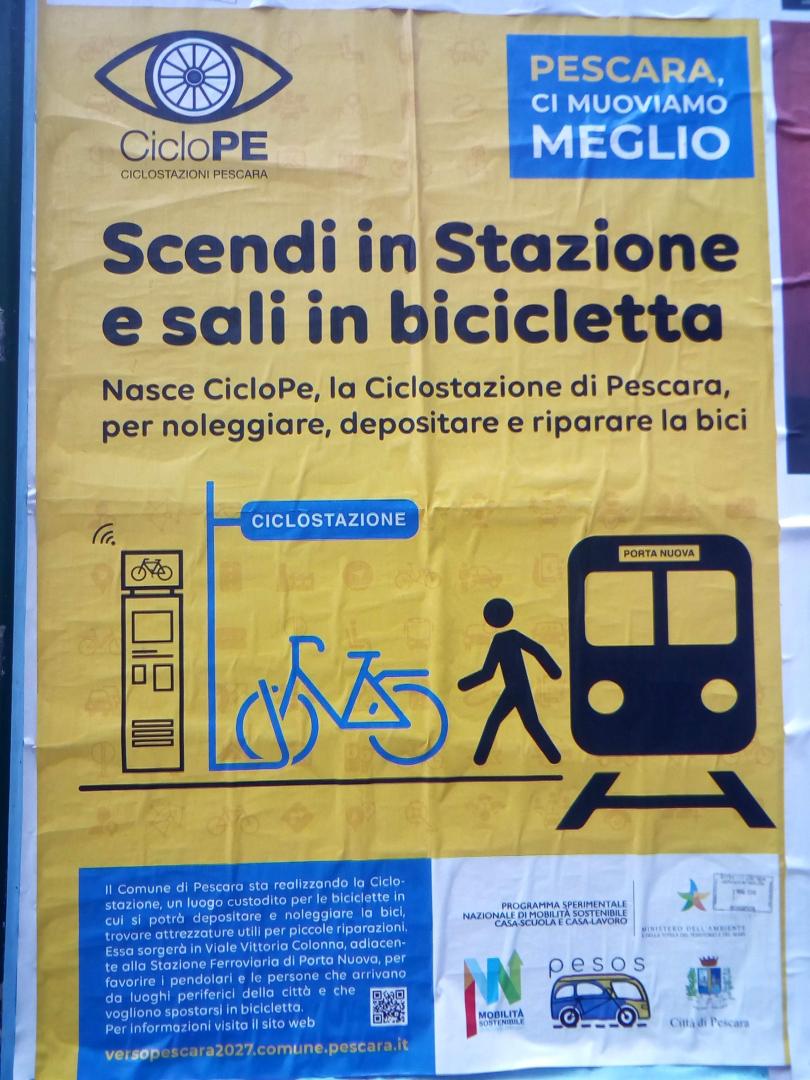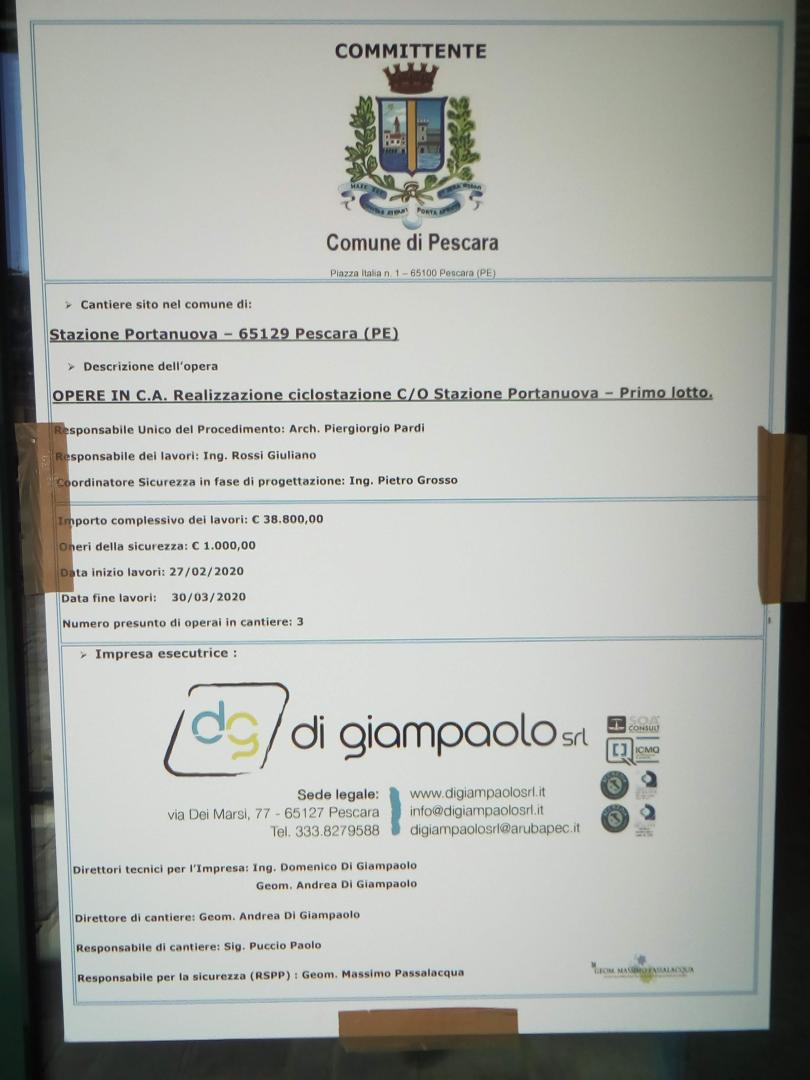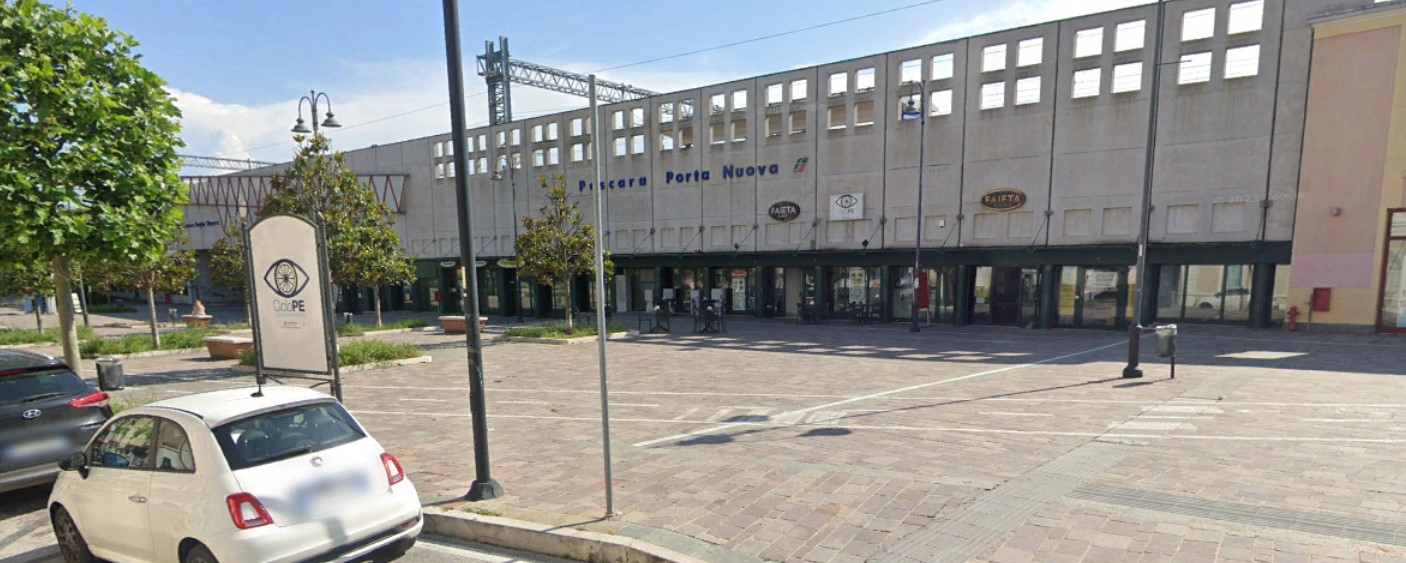BikeStation
Basic information
Project Title
BikeStation
Full project title
BikeStation
Category
Regaining a sense of belonging
Project Description
The Cycle Station is a space located in Porta Nuova railway station, dedicated to:
1. Bike storage
2. Rental
3. Repair
4. Delivery of scrap (to be reused)
5. Sale
6. CARGO service: luggage transport for residents or hotel users
7. Promotion of the initiatives and projects of the Municipality of Pescara
8. Promotion and tourist enhancement of municipal and regional sites, with particular pay attention to cycle tourism
9. Promotion of association initiatives.
1. Bike storage
2. Rental
3. Repair
4. Delivery of scrap (to be reused)
5. Sale
6. CARGO service: luggage transport for residents or hotel users
7. Promotion of the initiatives and projects of the Municipality of Pescara
8. Promotion and tourist enhancement of municipal and regional sites, with particular pay attention to cycle tourism
9. Promotion of association initiatives.
Geographical Scope
Regional
Project Region
Mostly Abruzzo, Italy
Urban or rural issues
It addresses urban-rural linkages
Physical or other transformations
It refers to other types of transformations (soft investment)
EU Programme or fund
Yes
Which funds
Other
Other Funds
Ministero dell’Ambiente, Decreto n. 208 del 20.07.2016, “Programma sperimentale nazionale di mobilità sostenibile casa-scuola e casa-lavoro”.<br />
A.T.I. Euromobility – Cras Srl<br />
66.000,00 euro
Description of the project
Summary
The Cycle Station is a space located in Porta Nuova railway station, dedicated to:
1. Bike storage
2. Rental
3. Repair
4. Delivery of scrap (to be reused)
5. Sale
6. CARGO service: luggage transport for residents or hotel users
7. Promotion of the initiatives and projects of the Municipality of Pescara
8. Promotion and tourist enhancement of municipal and regional sites, with particular pay attention to cycle tourism
9. Promotion of associations initiatives.
Sustainability: reduce the use of private cars for urban travel, reduce air pollution, encourage the use of bicycles
Inclusion: encourage the use of municipal services and commercial establishments, counter the spread of the stolen bicycle market, sale of cycles at low prices, aimed particularly at young people and students
Aesthetics: recover/recycle abandoned bicycles within the municipal area, valorise railway station area establishing new services
1. Bike storage
2. Rental
3. Repair
4. Delivery of scrap (to be reused)
5. Sale
6. CARGO service: luggage transport for residents or hotel users
7. Promotion of the initiatives and projects of the Municipality of Pescara
8. Promotion and tourist enhancement of municipal and regional sites, with particular pay attention to cycle tourism
9. Promotion of associations initiatives.
Sustainability: reduce the use of private cars for urban travel, reduce air pollution, encourage the use of bicycles
Inclusion: encourage the use of municipal services and commercial establishments, counter the spread of the stolen bicycle market, sale of cycles at low prices, aimed particularly at young people and students
Aesthetics: recover/recycle abandoned bicycles within the municipal area, valorise railway station area establishing new services
Key objectives for sustainability
Sustainability: reduce the use of private cars for urban travel, reduce air pollution, encourage the use of bicycles
Key objectives for aesthetics and quality
Aesthetics: recover/recycle abandoned bicycles within the municipal area, valorise railway station area establishing new services
Key objectives for inclusion
Inclusion: encourage the use of municipal services and commercial establishments, counter the spread of the stolen bicycle market, sale of cycles at low prices, aimed particularly at young people and students
Results in relation to category
Results, outcomes and impacts:
1. Increased number of using of shared bicycles
2. A lot of municipality projects were explained to citizens in Cycle station
3. The most popular bike association "Pescarabici" have moved their offices in Cycle station
1. Increased number of using of shared bicycles
2. A lot of municipality projects were explained to citizens in Cycle station
3. The most popular bike association "Pescarabici" have moved their offices in Cycle station
How Citizens benefit
Example 1: Citizens who lives in a hilly area (or in one that is difficult to reach by bicycle)
and is usually going to the city: once they have reached the Cycle Station (with
public transport or private transport), they can use their own bicycle (parked in bike storage).
Example 2: Citizens who live outside the city and must go in Pescara: once they have reached the Cycle Station (by public or private transport), they can
rent a bicycle.
Example 3: Citizens who need to fix their bycicles can repair at the Cycle Station
and is usually going to the city: once they have reached the Cycle Station (with
public transport or private transport), they can use their own bicycle (parked in bike storage).
Example 2: Citizens who live outside the city and must go in Pescara: once they have reached the Cycle Station (by public or private transport), they can
rent a bicycle.
Example 3: Citizens who need to fix their bycicles can repair at the Cycle Station
Physical or other transformations
It refers to other types of transformations (soft investment)
Innovative character
A system of moving people that couldn't exist in Pescara, mostly flat, where bycicle should be used more, and cars should be used less because they are useless in a city centre!
Disciplines/knowledge reflected
Transport engineering: studies about mobility of metropolitan area
Urban planning: study of urban centers and the possible improvements that can be made to them
Commercial urban planning: urban planning applied to the planning of places dedicated to commercial activity
Psychology: study of mental processes
Cultural anthropology: study of the culture of various groups of human beings
Urban planning: study of urban centers and the possible improvements that can be made to them
Commercial urban planning: urban planning applied to the planning of places dedicated to commercial activity
Psychology: study of mental processes
Cultural anthropology: study of the culture of various groups of human beings
Methodology used
Methodology and approach I used in my project were inspired by the best cities i lived in the last 15 years: Copenhagen, Amsterdam, Reggio Emilia, Parma, Bologna
How stakeholders are engaged
Municipality of Pescara: can promote the initiatives and projects about mobility
Citizens: They can use bike storage, rental and repair services, can deliver scrap (to be reused)
Tourists: They can use CARGO service (luggage transport for residents or hotel users)
Associations: they can show their projects
The added value of their engagement is to create a common way of life that thinks a new way to move in and through the city, freeing that from cars everywhere, also over sidewalks and cycle paths!
Citizens: They can use bike storage, rental and repair services, can deliver scrap (to be reused)
Tourists: They can use CARGO service (luggage transport for residents or hotel users)
Associations: they can show their projects
The added value of their engagement is to create a common way of life that thinks a new way to move in and through the city, freeing that from cars everywhere, also over sidewalks and cycle paths!
Global challenges
A new way to live the centre of Pescara, increasing the use of bicycles, avoiding the use of cars who are useless in a city centre and who filled any space of the city, also sidewalks and cyclepaths!
Learning transferred to other parties
My project could be replicated in cities or towns have a railway station: once railway station is reached, user con rent a bike, take a shared bike for shopping, trekking, to reach any place for bussiness, ...
Keywords
reduce the use of private cars
encourage the use of municipal services and commercial establishments
reduce air pollution
sale of cycles at low prices
valorise railway station area

